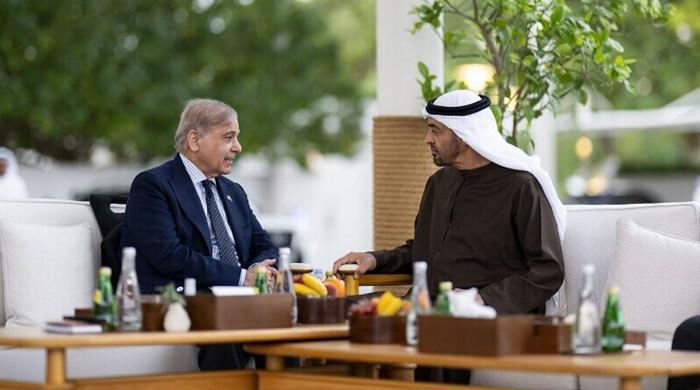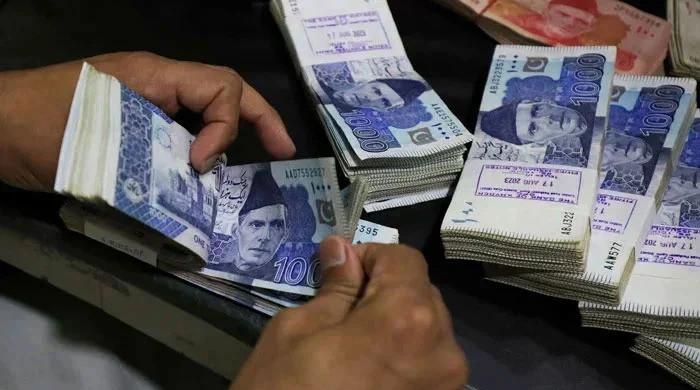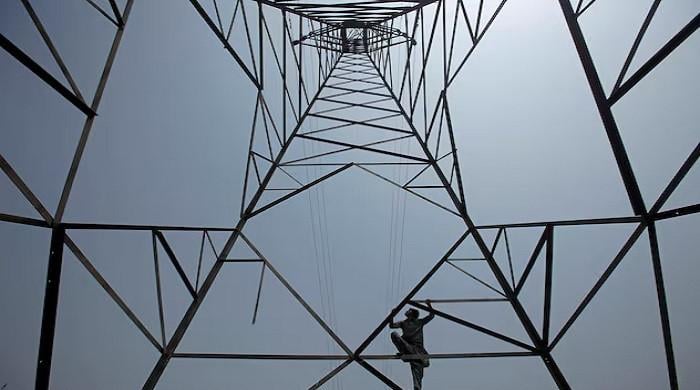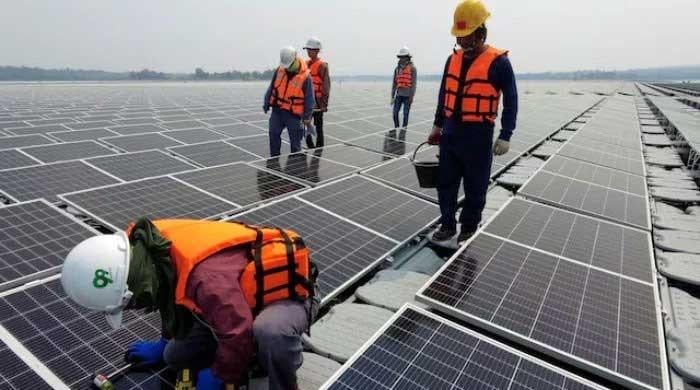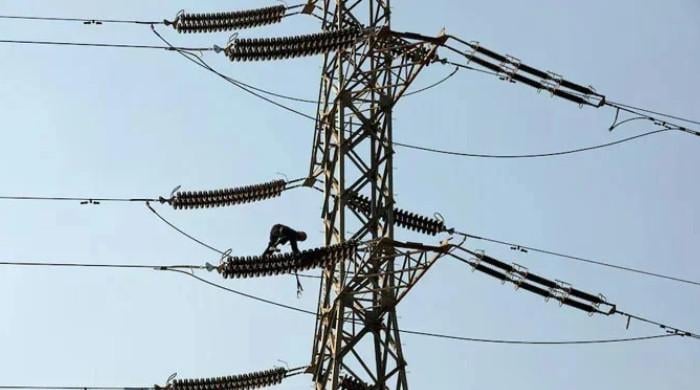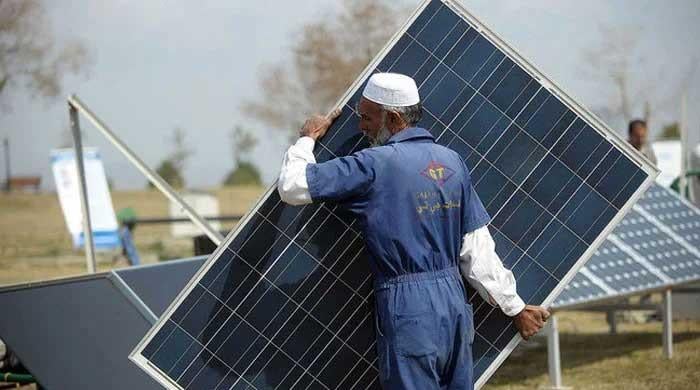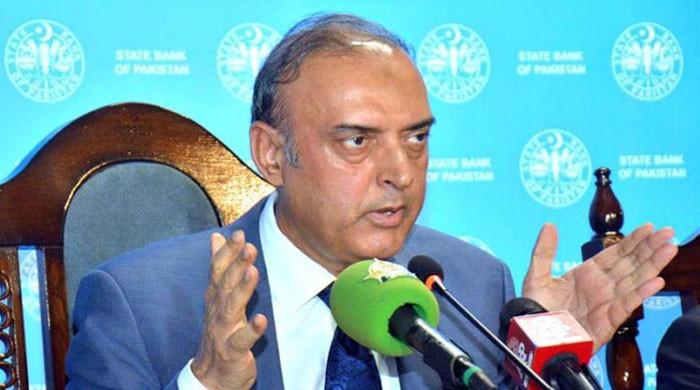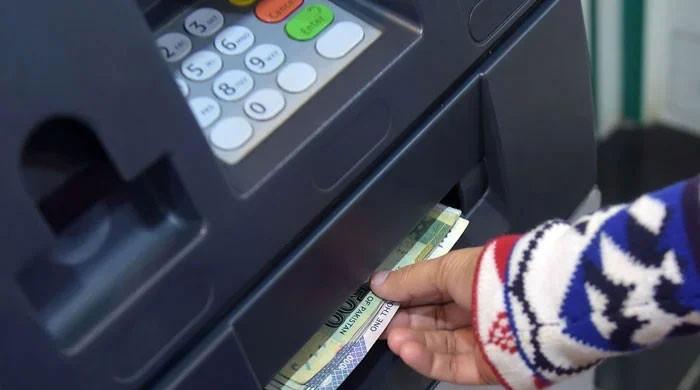Budget 2022-23: Pakistan progressing unlike earlier path to default, says Miftah Ismail
Finance minister announces amendments to budget 2022-23 during wrap up speech in National Assembly
June 24, 2022
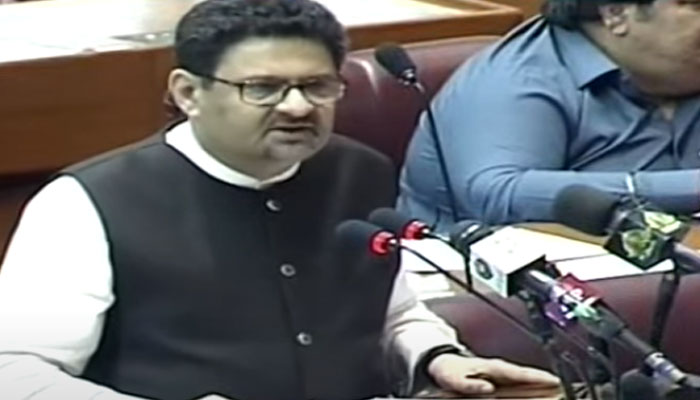
- Finance minister announces amendments to budget 2022-23 during wrap up speech in NA.
- He terms restoration of IMF programme "necessary" to save country from defaulting.
- To decrease country’s reliance on other countries for funds, Miftah announces a list of taxes on rich.
ISLAMABAD: Pakistan is no longer heading towards a default as it has now moved on to a path of progress, Federal Minister for Finance and Revenue Miftah Ismail said Friday in his closing speech on the federal budget for the fiscal year 2022-23 in the National Assembly of Pakistan.
The premier wrapped up the discussion on budget 2022-23 after the consideration of the recommendations made by the Senate. The finance minister said there hasn't been a more “farmer-friendly budget” in the last 10 years.
His speech in NA, where only 40 members were present, came minutes after PM Shehbaz Sharif took the nation into confidence over the "tough" decisions taken by the government for budget 2022-23.
After the debate on the budget commenced in the assembly today, Miftah said most of the recommendations put forward by lawmakers in the Senate and NA during preceding sittings had been incorporated into the budget.
"The long-term benefits of this budget will be that the country will become self-sufficient in edible oil, wheat, and other commodities just as the PML-N government had left it during its last regime," he claimed.
Ismail said funds for farmers in the budget were not to be considered as subsidies but as investments. "We believe that if we will invest in farmers, they will give us the best returns."
'FY22 bad fiscal year'
The finance minister further added that the outgoing fiscal year 2022-23 will be considered a "bad year" in the country’s history as Pakistan had a huge budget deficit and missed several targets.
“The federal government’s budget deficit this year was Rs53,010 billion rupees while the total deficit was Rs74.04 billion," he said, adding that such a deficit means that the government has to ask for money from the entire world.
Taking a jibe at former prime minister Imran Khan's narrative regarding self-sufficiency, he said: “We talk about self-sufficiency and independence, but what kind of independence is this when you take Rs20,000 billion in loans during a period of three to four years."
'Govt saved country from defaulting'
Miftah claimed that the coalition government saved the country from defaulting — that the PTI government had taken the country close to.
The minister thanked PML-N and other parties' leaderships for allowing him to take tough decisions.
He said the "federal government has posted a deficit of 8.95% of the old gross domestic product (GDP)", adding that this showed the wide gap between the country's expenditure and resources.
"And then we have to take funds from others," Ismail said, adding that it was for this very reason that he had to go on multiple foreign trips right after becoming the finance minister in April.
He also blamed the previous government over fuel and energy subsidies that it had announced on February 28.
The subsidies, he said, were worth Rs120 billion and thanked the PML-N partners in the coalition set up for accepting that the government could not bear this expense at a difficult time like this.
"It was a tough decision to end the subsidies," he said, acknowledging the coalition parties for supporting the "tough" decision.
Revival of IMF programme 'necessary'
He termed the restoration of the International Monetary Fund (IMF) programme "necessary" in order to save the country from defaulting.
Miftah highlighted that now the Fund itself has confirmed that major progress has been made in talks with Pakistan, which he said would be reflected in the upcoming steps taken by the government.
Miftah takes credit for imposing taxes on PM's sons
Commenting on the taxes, he said the government didn’t impose indirect taxes and taxes on consumption which impacts the poor disproportionately.
"Taxes have been imposed on the rich and elite people and companies to generate more capital from them so that we don’t have to beg for money from the world," Miftah said.
He asked the speaker to give him more credit to impose greater taxes on the companies of the prime minister's sons. He said that the companies owned by him and PM Shehbaz's sons will also pay additional taxes.
Rs40,000 fixed income, sales tax on small gold shops
Moving on to the gold markets in Pakistan, Miftah said that there are over 30,000 gold shops, however, only 22 are registered and their average sales are worth Rs4,000 per day.
“These market owners show their sales at Rs4,000 but we believe the average sales amount to approximately Rs100 million,” he said, announcing that a fixed income and sales tax worth Rs40,000 has been imposed on the shops that cover an area of less than 300 square feet so that all gold shops come into the tax radar.
Meanwhile, 17% sales tax has been reduced to 3% for shops covering an area of more than 300 square feet (and fall under tier-1) as such higher tax can never be received from jewellery markets.
Moreover, the withholding tax of 4% has been brought down to 1% for local consumers who sell gold in the markets.
The finance minister said that these taxes imposed on the gold sector are mostly in line with the recommendations of gold shop owners.
Special scheme for restaurants, retailers, car dealers
Miftah further added that a special scheme will be soon introduced for people who are involved in the real estate business, for builders — who sell the property after its construction — car dealers, and restaurant owners under which fixed income tax will be imposed on them.
“We want to tax them their income and not their expenditures which is why the government has decided to impose fixed taxes on these businesses,” he clarified, maintaining that this would not add to rising inflation and only increase revenue
Programmes for poor people
The finance minister reiterated that they have tried to put less burden on the poor, adding that because of this the premier has launched a cheap petrol and diesel scheme under which so far more than four million people have registered.
He also clarified that these four million people are other than those who are already registered under the Benazir Income Support Programme (BISP). These people have been given Rs2,000 each which amounts to Rs16 billion.
“Those people whose household income is less than Rs40,000 and have still not registered under the scheme can message on 786 to avail the facility,” he requested.
The finance minister said that in line with their agenda to reduce the burden on poor people, PM Shehbaz has initiated a programme for Utility Stores Corporation (USC) under which wheat, ghee, and sugar will be provided at cheaper rates throughout the year.
However, the government is planning to set an income target for the facility which will ensure the benefit is only provided to the deserving.
Increase in income tax for elites
The finance minister said that to curtail the previous four record budget deficits during PTI’s tenure, taxes will be collected from the rich. “The revenue from the rich will help the government achieve its target of budget surplus — which has been committed to the IMF,” he added.
Moreover, to decrease the country’s reliance on other countries for funds, Miftah announced a list of taxes that would be collected from the elite class and large-scale industries. The following is the list of taxes to be imposed:
- 1% additional super tax on individuals or companies earning more than Rs150 million
- 2% additional super tax on individuals or companies earning more than Rs200 million
- 3% additional super tax on individuals or companies earning more than Rs250 million
- 4% additional super tax on individuals or companies earning more than Rs300 million
“These additional taxes will be only be imposed for a year (fiscal year 2022-23),” he clarified.
10% super tax imposed on 13 sectors
Miftah shared the government had identified 13 sectors that had earned significant profits this year. "We have decided that companies that have an income of more than Rs300 million will be subject to a super-tax of 10% for a year," he announced. This covers the following sectors:
- Cement
- Steel
- Banking
- Airlines
- Textile
- Automobile assembling
- Sugar mills
- Beverages
- Oil and gas
- Fertiliser
- Cigarettes
- Chemicals
- LNG terminals
Meanwhile, 4% super tax will be applicable to all other sectors.
Miftah, later in a tweet, also clarified that the super tax of 4% will be applicable to all sectors. But for the specified 13 sectors, another 6% will be added for a total of 10%. So, their tax rates will go from 29% to 39%.
“This is a one-time tax needed to curtail the previous four record budget deficits,” he said.
Moving on to details of other taxes, he said there were around 900,000 retail shops in Pakistan and the government wanted to bring 250,000 to 300,000 of these shops into the tax net.
For this purpose, he said, a new scheme had been introduced under which the income and sales taxes these shops were to pay had been "fixed with their electricity bills". He added that under this initiative, small shops would have to pay a fixed tax of Rs3,000 monthly and big retailers Rs10,000.
Tax concessions
Moving towards some other concessions which have been decided after considering the recommendations, the finance minister announced the following:
- Condition of withholding tax on IT sector companies withdrawn
- Companies with sales less than Rs800 million exempted from withholding tax, statement submission
- Tax on venture capitalist funds invested in IT sector removed
- Minimum tax on oil marketing companies which was 0.75% reduced to 0.5%
- Commission on outgoing indenters at the time of receipt slashed to 1% from 5%
- Provision of 50% reduction in capital gains tax for those who had been allotted plots while in service restored
- Families of martyred and war-wounded individuals exempted from tax on income from plots
- Sales tax on leather and surgical instruments industries removed
Overseas Pakistanis who had a NICOP would be included in the list of active taxpayers so they don't have to pay additional taxes on property purchases.
Tax collection target increased
Miftah also told the house that the tax target, which was initially set at Rs7.004 trillion had been increased to Rs7.47 trillion. At the same time, he added, the target of non-tax revenue that was set at Rs2 trillion had been revised down to Rs1.94 trillion.
He announced that the government will give Rs4.37 trillion to the provinces.
"After all these expenses, the federal government's deficit would stand at Rs4.55 trillion and total deficit at Rs3.78 trillion," the finance minister added.
He recalled that when erstwhile Fata was merged with Khyber Pakhtunkhwa, the tribal areas had been given an exemption from tax "of every kind" until 2023.
Miftah said the government intended to introduce a bill to exempt the residents of these areas from paying income tax.
However, he added, companies and industries operating in these areas would be brought into the tax net.
With the Opposition absent, the federal budget for the fiscal year 2022-23 was first unveiled on June 10 in the National Assembly by the finance minister.




